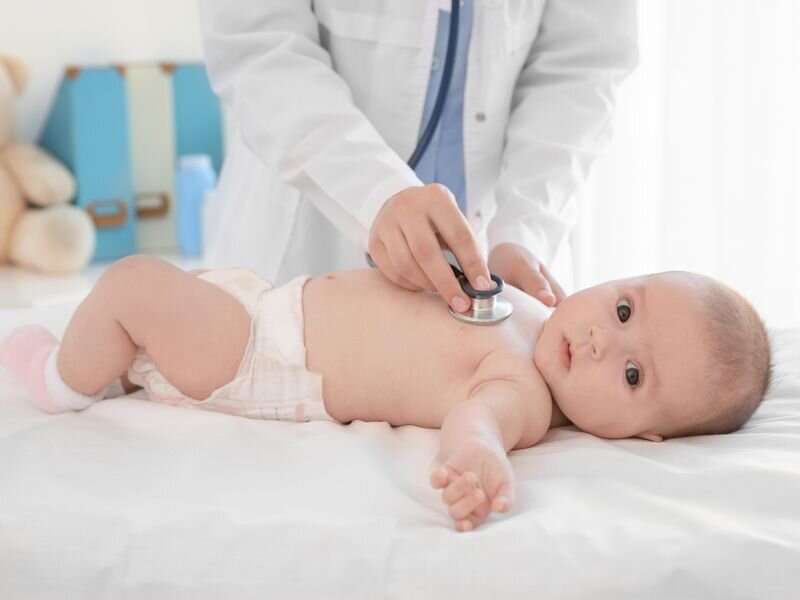
Statistical shape modeling of ultrasound (US) images of well-centered stable dysplastic hips in infants can predict persistent hip dysplasia (development of Graf type II hips) that could benefit from treatment, according to a study published in the May issue of Radiology.
Joshua M. Bonsel, M.D., from the University Medical Center Utrecht in the Netherlands, and colleagues used statistical shape modeling on US images to identify acetabular shape characteristics of Graf type II hips to enable prediction of the development and outcome of well-centered stable dysplastic hips. A statistical shape model was developed on baseline images from 104 infants aged 3 to 4 months with Graf type IIb or IIc hip dysplasia. Shape modes were correlated with the outcomes of persistent hip dysplasia on US images after 12-week follow-up and with residual hip dysplasia on pelvic radiographs around 1 year of age.
Baseline US images were available for 97 infants (90 cases of Graf type IIb hip dysplasia; 52 treated with Pavlik harness). The researchers found that shape modes 2 and 3 of the statistical shape modeling were associated with persistent hip dysplasia on US images (odds ratios, 0.43 and 2.39, respectively), and mode 2 was associated with residual hip dysplasia on pelvic radiographs (odds ratio, 0.09). After multivariable analysis, the interaction term (treatment with mode) remained significant; for patients with negative mode 2 values, Pavlik harness treatment was beneficial (odds ratio, 12.46).
Source: Read Full Article
